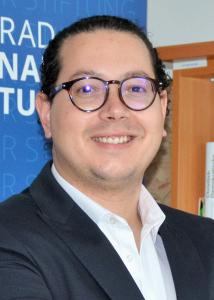Facilitating dialogue and strengthening cross-regional exchanges remain essential and a core priority for the Regional Programme Political Dialogue South Mediterranean of the Konrad Adenauer Stiftung (KAS PolDiMed). It is within this framework that between 16th and 26th October 2022, the European Academy Otzenhausen (EAO), in cooperation with KAS PolDiMed, organized a seminar on ‘The European Union and the Maghreb Region: Challenges, Issues and Prospects for Future Cooperation’.
Comprised of a number of well-designed and engaging lectures, discussions, workshops, and field visits, the seminar brought together 17 brilliant participants, both students and young professionals, from Algeria, Morocco, and Tunisia, following an online Call for Applications, to expand their knowledge about the structure and functions of the European Union institutions and the EU-Maghreb relations, be it politically, economically or socially.
The program was based on well-tailored lectures and workshops to explain the history, challenges, and prospects of the EU. Part of the field visits was the European Parliament in Strasbourg where the participants met with Mr Andreas Schwab, Member of the European Parliament from the European People's Party and attended a plenary session. Participants also visited the Court of Justice of the European Union in Luxemburg and developed a better understanding of its role and prerogatives. Moreover, they had the opportunity to learn about the German academic system during their field visit to the Universität des Saarlandes as well as the history of Germany by visiting the city of Trier and the former concentration camp of Hinzert.
Equally important, the seminar focused extensively on fostering dialogue between the participants and nationalities on a variety of issues of both common interests and contention. Echoing this approach, the participants stressed that youth can play an instrumental role in pushing for constructive dialogue to overcome some of the thorny issues in the region. During the seminar, Germany, that was once divided, was frequently set as an example when it unified after the Cold War and was later fully integrated in the EU institutions. The EU was also regarded as a great example of regional economic integration. For instance, on the economic front, participants highlighted the importance of greater cooperation within the Maghreb region since the level of intra-Maghreb trade remains very low compared to other trading blocs in the world. Interesting discussions also revolved around people mobility and migration issues in the region in addition on supporting democratic transition.













